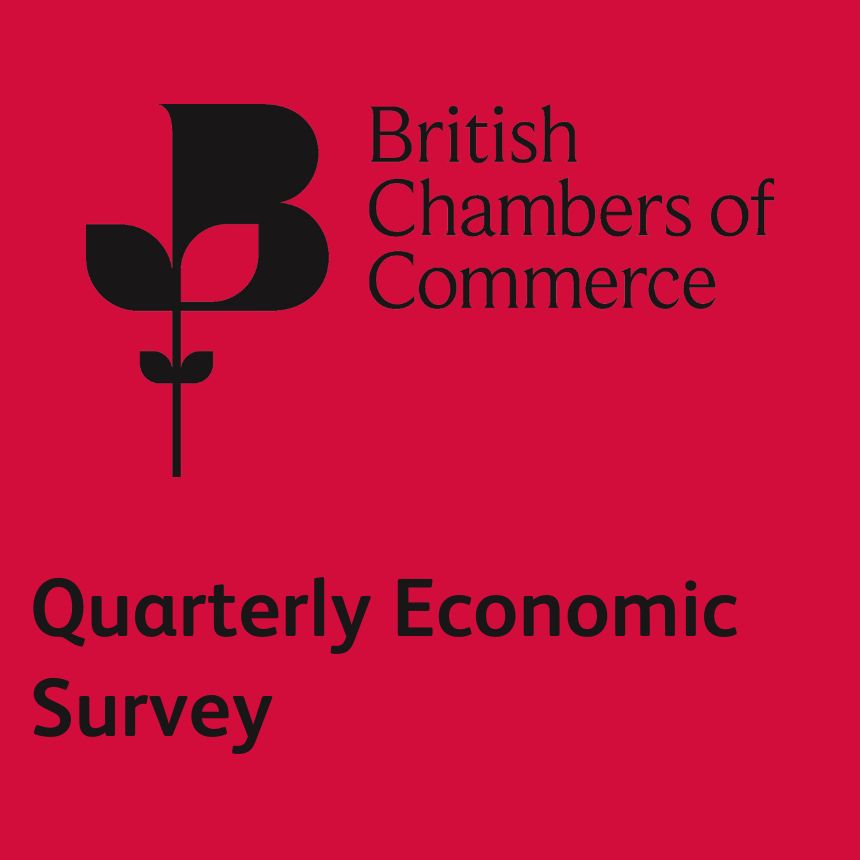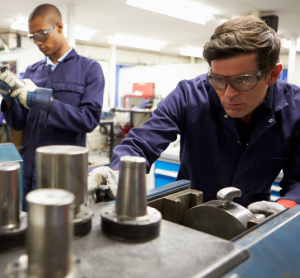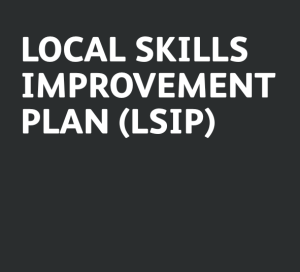The UK’s largest business sentiment survey before next month’s Budget, shows most remain bruised, with no improvement in business sentiment. The British Chambers of Commerce (BCC) Quarterly Economic Survey for Q3 has found confidence and investment levels remain at 2022 levels.
This survey is undertaken regularly by BCC’s Insights Unit, working with independent Chambers of Commerce across the UK.
Despite our relatively small business population compared to many other areas, Cumbria is always well represented – ensuring the voice of Cumbrian business is heard strongly in Westminster and the Bank of England.
Nationally less than half of responding businesses (48%) are expecting increased turnover in the next 12 months, while 21% expect a decrease. Meanwhile, only 21% have increased investment and 25% have scaled back plans.
The data also shows tax remains the biggest concern alongside increased worries over inflation.
Confidence flatlines ahead of the Budget
Confidence among business remains flat, with only 48% of respondents expecting their turnover to increase over the next 12 months. That compares with 49% in Q2 and 58% before the 2024 Budget. A fifth (21%) of businesses expect turnover to worsen and 32% expect no change.
The data show wide sectoral disparities. Only 35% of retailers expect increased turnover in the next 12 months (44% in Q2), while the figure in the hospitality sector is 38% (33% in Q2).
Tax and inflation are the top concerns for business
Following the Employer National Insurance Contributions (NICs) rise in April, tax continues to be the biggest concern for businesses. 59% cite tax as a worry, up from 56% in Q2. Before last year’s Budget, only 36% cited tax as a concern (Q2 2024).
There has been a sharp rise in concern about inflation, cited by 57% (52% in Q2), the highest level
since the start of 2024. Worries about interest rates remain at relatively low levels – cited by a quarter of responding businesses (25%).
A quarter of businesses cutting back on investment
With businesses facing increased cost pressures, investment levels continue to suffer. A quarter of businesses (25%) say they have cut back on investment plans (broadly similar to 24% in Q2). The majority, 54%, say their investment strategy has remained the same, while 21% have increased their plans.
The issue is more marked in certain sectors, with over a third of hospitality businesses (35%) scaling back investment plans (39% in Q2). While the figure for those in the retail sector is 30%.
No improvement in business conditions
The percentage of responding businesses reporting increased domestic sales remains unchanged from last quarter – at 32%. 43% reported no change and a quarter (25%) said they had seen a decrease in sales. Sectoral breakdowns show increased sales are at their lowest among retailers (21%).
Around a quarter of businesses (24%) report an increase in cash flow over the last three months, down from 26% in the previous quarter. A third (29%) report a fall in cash flow, while for 46%, cash flow remained the same.
Price rise expectations remain high
The proportion of businesses expecting to raise their prices in the next three months remains high at 44%. That’s the same level as Q2 but down from a near-historic high of 55% in Q1. Just over half (54%) say their prices are likely to remain the same, and only 3% are expecting them to decrease.
Labour costs continue to be far and away the main cost pressure for firms, cited by 72% of respondents (73% in Q1). The issue remains the most significant in the hospitality sector (80%) and the transport sector (78%).
Typical comments from Cumbrian businesses
Cumbria Chamber Managing Director, Suzanne Caldwell, said:
“While we know from other work with businesses, not least the grant schemes we’re delivering for both Cumberland and Westmorland & Furness Councils) that there are real opportunities and positive investment happening, the comments provided by respondents to this survey where overwhelmingly negative. And the success and continuation of investments and growth are very vulnerable to what could happen in the Budget.”
Retail & hospitality
“Footfall is reasonable but average spend per customer has decreased. We have cut costs wherever possible but tried not to impact quality and customer experience but these have been negated by increased wages and increased costs in raw materials so we are effectively standing still which does not bode well for winter.”
SME exporter
“We are hitting a financial wall due to the Trump tariffs.”
Construction
“Work has been on a steady decline for 18 months We seem to be levelling out now but any tinkering with any item associated with housing will have a very serious negative effect if costs are increased. Our biggest concern now is how much the damage the Autumn Budget Statement will cause.”
Farmer
“Farming seems to be polarising – go bigger or give up. We aren’t able to go any bigger so the future of the farm is looking bleak.”
Retailer
“We have de-registered for VAT, will evaluate the viability of our business over the next two years with a view to selling up as we are not making enough to survive and cannot see things improving any time soon.”
Food & drink manufacturer
“Whilst the NI increase has had a huge impact on our business, we are being requested by our customers not to increase our prices due to the increase in NI and that impact on their businesses – it’s a catch 22 situation where we are struggling to remain competitive yet cover overheads.”
Visitor attraction
“Our business has grown in terms of sales value, but this is not the whole story. Our profitability has not improved with growth, it has just managed to cover the increases in minimum wage, Employers NI, commercial rates and inflation. In our case our sales increase can be put down to well spent local ‘levelling up’ grants on things like playground, public events spaces, high street renovation.”
Training
“The business landscape if changing rapidly. Costs are rising and companies are not investing in the way they were. Controlling costs and maintaining business volumes are top of the agenda and recent hikes in NI and other costs have had an adverse effect on business confidence to invest.”
David Bharier, Head of Research at the British Chambers of Commerce, said:
“Ahead of the Chancellor’s statement next month, our survey shows many firms remain bruised and are not ready for another Budget battering. The research reveals no clear improvements in indicators we track. For twelve months, SMEs have told us the same story: rising costs, weak investment, and little sense of relief on the horizon.
“The Employer NICs increase has been the most widely cited source of pressure, hitting investment and pushing up prices. The proportion of businesses expecting to raise prices remains worryingly high, driven primarily by labour costs. Inflation now sits alongside taxation as a top concern. The global shift towards protectionism and tariffs has also been a major compounding factor.
“Persistent weak sentiment this quarter may suggest that many firms have already priced in a tough Budget. But further surprise measures that hit business, like those seen in 2024, could drive confidence even lower.”
Suzanne Caldwell, added:
“Businesses need certainty and a long-term strategy, not more ad hoc policy shifts. And business cannot be expected to bear the brunt of funding spending plans, while also being forced to increase wages, as happened in last year’s Budget. We need to be enabled to grow and flourish – and in turn contribute through part of that prosperity – not be continuously battered.
The AI revolution, for example, could be a real, and much needed, productivity game changer and Chambers’ recent research shows that more SMEs are adopting it. But businesses need the resources and headspace to invest and adapt if the UK is to seize the opportunity.
With the rest of the national Chamber network, our message to the Chancellor ahead of the Budget is clear – no further tax rises on business. SMEs specifically are calling for urgent action to tackle skills shortages, a bold push to boost exports, and more investment in infrastructure. Without that, confidence could deteriorate further, putting economic growth at risk”.






